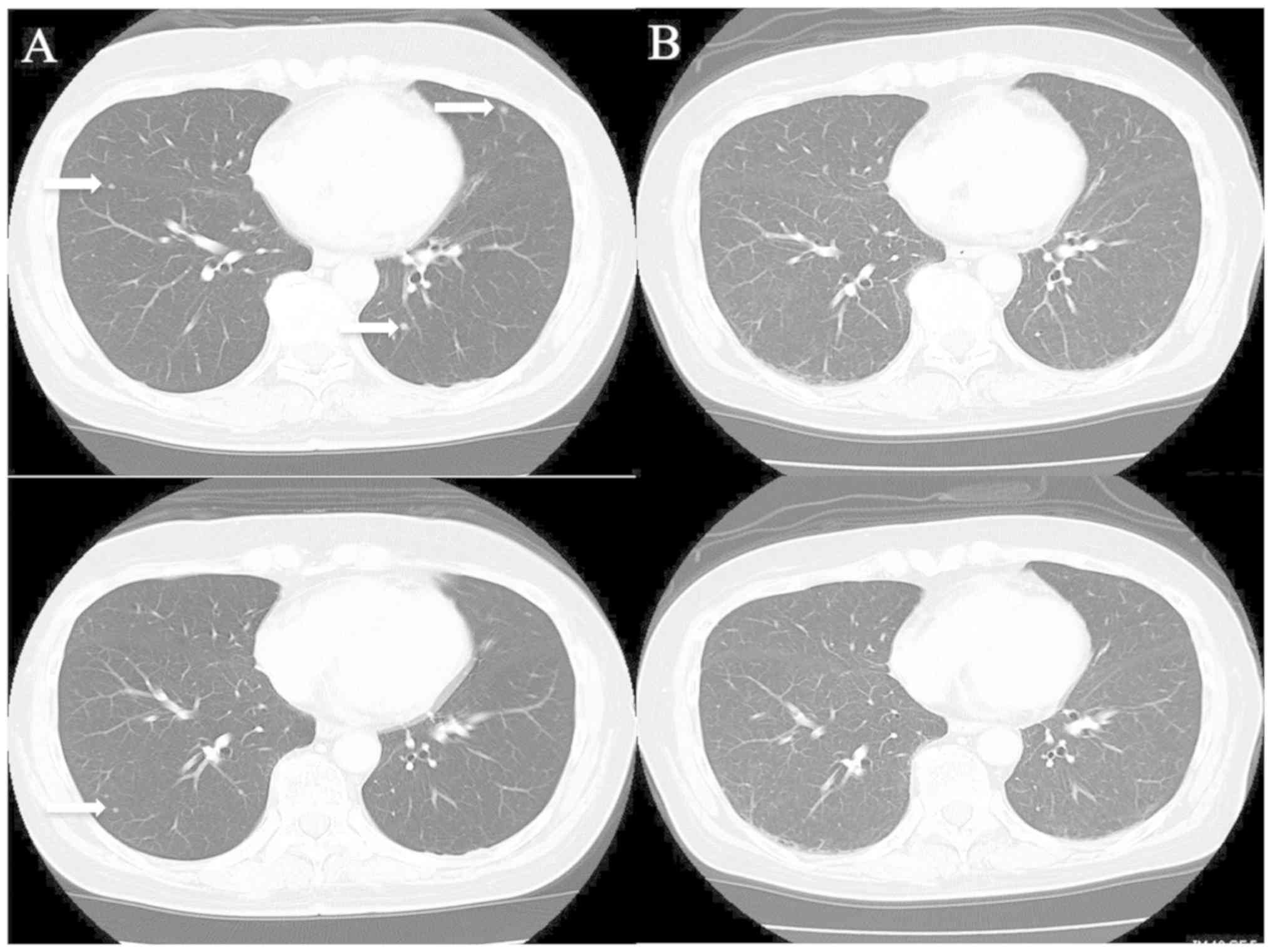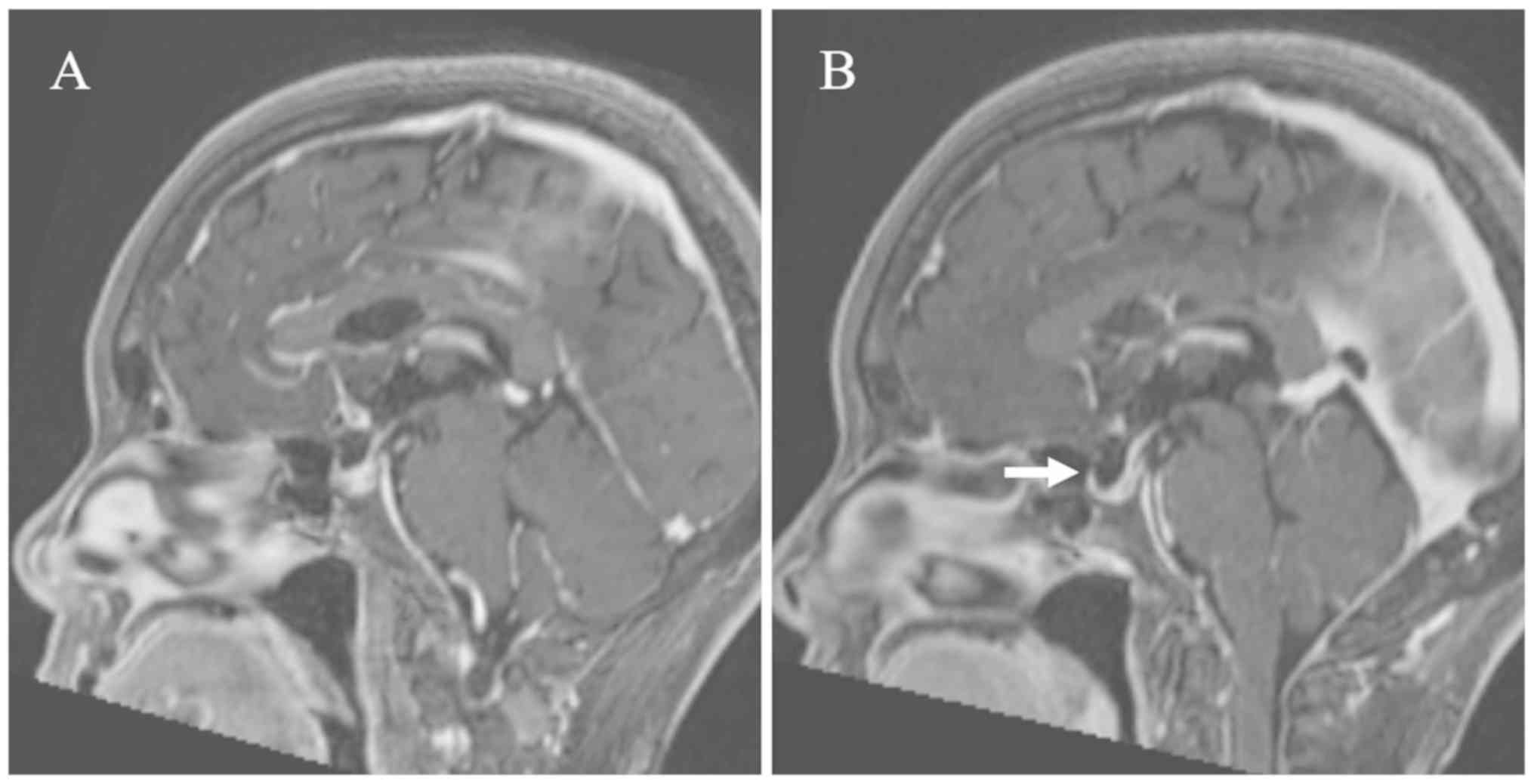|
1
|
Motzer RJ, Tannir NM, McDermott DF, Arén
Frontera O, Melichar B, Choueiri TK, Plimack ER, Barthélémy P,
Porta C, George S, et al: Nivolumab plus ipilimumab versus
sunitinib in advanced renal-cell carcinoma. N Engl J Med.
378:1277–1290. 2018. View Article : Google Scholar : PubMed/NCBI
|
|
2
|
Heng DY, Xie W, Regan MM, Warren MA,
Golshayan AR, Sahi C, Eigl BJ, Ruether JD, Cheng T, North S, et al:
Prognostic factors for overall survival in patients with metastatic
renal cell carcinoma treated with vascular endothelial growth
factor-targeted agents: Results from a large, multicenter study. J
Clin Oncol. 27:5794–5799. 2009. View Article : Google Scholar : PubMed/NCBI
|
|
3
|
Heng DY, Xie W, Regan MM, Harshman LC,
Bjarnason GA, Vaishampayan UN, Mackenzie M, Wood L, Donskov F, Tan
MH, et al: External validation and comparison with other models of
the international metastatic renal-cell carcinoma database
consortium prognostic model: A population-based study. Lancet
Oncol. 14:141–148. 2013. View Article : Google Scholar : PubMed/NCBI
|
|
4
|
Ardolino L and Joshua A: Immune checkpoint
inhibitors in malignancy. Aust Prescr. 42:62–67. 2019. View Article : Google Scholar : PubMed/NCBI
|
|
5
|
Postow MA, Chesney J, Pavlick AC, Robert
C, Grossmann K, McDermott D, Linette GP, Meyer N, Giguere JK,
Agarwala SS, et al: Nivolumab and ipilimumab versus ipilimumab in
untreated melanoma. N Engl J Med. 372:2006–2017. 2015. View Article : Google Scholar : PubMed/NCBI
|
|
6
|
Motzer RJ, Escudier B, McDermott DF,
George S, Hammers HJ, Srinivas S, Tykodi SS, Sosman JA, Procopio G,
Plimack ER, et al: Nivolumab versus everolimus in advanced
renal-cell carcinoma. N Engl J Med. 373:1803–1813. 2015. View Article : Google Scholar : PubMed/NCBI
|
|
7
|
Hammers HJ, Plimack ER, Infante JR, Rini
BI, McDermott DF, Lewis LD, Voss MH, Sharma P, Pal SK, Razak ARA,
et al: Safety and efficacy of nivolumab in combination with
ipilimumab in metastatic renal cell carcinoma: The CheckMate 016
study. J Clin Oncol. 35:3851–3858. 2017. View Article : Google Scholar : PubMed/NCBI
|
|
8
|
Hottinger AF: Neurologic complications of
immune checkpoint inhibitors. Curr Opin Neurol. 29:806–812. 2016.
View Article : Google Scholar : PubMed/NCBI
|
|
9
|
Tarhini A: Immune-mediated adverse events
associated with ipilimumab ctla-4 blockade therapy: The underlying
mechanisms and clinical management. Scientifica (Cairo).
2013:8575192013.PubMed/NCBI
|
|
10
|
Ibrahim RA, Berman DM, DePril V, Humphrey
RW, Chen T, Messina K M, Chin M, Liu HY, Bielefield M and Hoos A:
Ipilimumab safety profile: Summary of findings from completed
trials in advanced melanoma. J Clin Oncol. 29 (15 Suppl):S85832011.
View Article : Google Scholar
|
|
11
|
Caturegli P, Di Dalmazi G, Lombardi M,
Grosso F, Larman HB, Larman T, Taverna G, Cosottini M and Lupi I:
Hypophysitis secondary to cytotoxic T-lymphocyte-associated protein
4 blockade: Insights into pathogenesis from an autopsy series. Am J
Pathol. 186:3225–3235. 2016. View Article : Google Scholar : PubMed/NCBI
|
|
12
|
Schadendorf D, Wolchok JD, Hodi FS,
Chiarion-Sileni V, Gonzalez R, Rutkowski P, Grob JJ, Cowey CL, Lao
CD, Chesney J, et al: Efficacy and safety outcomes in patients with
advanced melanoma who discontinued treatment with nivolumab and
ipilimumab because of adverse events: A pooled analysis of
randomized phase II and III trials. J Clin Oncol. 35:3807–3814.
2017. View Article : Google Scholar : PubMed/NCBI
|
|
13
|
Spain L, Walls G, Julve M, O'Meara K,
Schmid T, Kalaitzaki E, Turajlic S, Gore M, Rees J and Larkin J:
Neurotoxicity from immune-checkpoint inhibition in the treatment of
melanoma: A single centre experience and review of the literature.
Ann Oncol. 28:377–385. 2017.PubMed/NCBI
|
|
14
|
National Comprehensive Cancer Network, .
Guidelines on Management of Immune Checkpoint Inhibitor-Related
Toxicities Version 2, 2019. https://www.nccn.org/professionals/physician_gls/pdf/immunotherapy.pdf/Jun
3–2019
|
|
15
|
Brahmer JR, Lacchetti C, Schneider BJ,
Atkins MB, Brassil KJ, Caterino JM, Chau I, Ernstoff MS, Gardner
JM, Ginex P, et al: Management of immune-related adverse events in
patients treated with immune checkpoint inhibitor therapy: American
society of clinical oncology clinical practice guideline. J Clin
Oncol. 36:1714–1768. 2018. View Article : Google Scholar : PubMed/NCBI
|
















